Religion: Religious Leaders Post-1900
Albert Schweitzer (1875–1965)
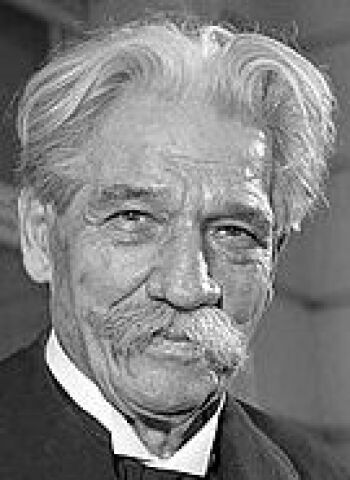
Religion and Branch: Protestant Christianity (Lutheran)
Title: Minister, Theologian, Philosopher, Writer, Organist
Albert Schweitzer was a polymathic figure known for his contributions to theology, music, medicine, and philosophy. Born in Alsace, then part of the German Empire but later annexed by France, he became an emblematic figure in both German and French cultures.
Schweitzer was deeply engaged with Christian theology and wrote a seminal work, The Quest of the Historical Jesus, in which he critically assessed the available studies on Jesus and presented his interpretation. Philosophically, he is best known for developing the principle of reverence for life, which underpinned his ethical views and belief in the interconnectedness and sacred value of all life forms.
A highly skilled organist, Schweitzer also wrote extensively on the composer Johann Sebastian Bach. His works on Bach are recognized for their depth and insight, reflecting his profound appreciation for music as a spiritual endeavor.
Feeling a moral obligation to give back, Schweitzer decided to become a medical doctor and established a hospital in Lambaréné, Gabon, a French colony at that time. His selfless service to the people of Gabon for several decades earned him global recognition and the 1952 Nobel Peace Prize. His hospital in Gabon continues to serve patients to this day.
Schweitzer is remembered not only for his intellectual contributions but also for embodying a life of service and compassion. His advocacy for peace and disarmament further elevated his status as a moral leader of his time. He can be seen as a bridge between German and French thought and humanitarian values, embodying the spirit of European unity and shared commitment to the betterment of humanity.
Pierre Teilhard de Chardin (1881–1955)
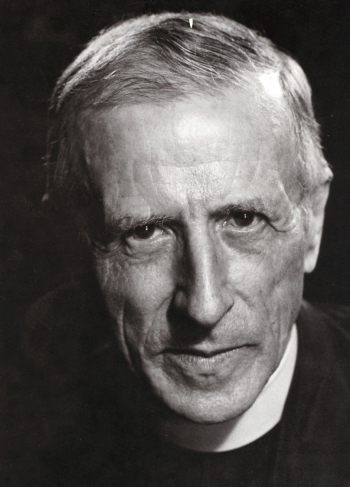
Religion and Branch: Christianity (Catholicism)
Title: Priest, Philosopher, Theologian, Paleontologist
Pierre Teilhard de Chardin was a French Jesuit priest, philosopher, theologian, and paleontologist known for his visionary and often controversial ideas that sought to reconcile Christian theology with evolutionary science. He proposed a unique perspective on the evolutionary process, interpreting it as a spiritual and teleological journey culminating in the Omega Point, a state of supreme consciousness and unity with the Divine.
Chardin believed evolution was a process directed toward increasing complexity and consciousness, with Christ as its culmination. In his most famous work, The Phenomenon of Man, Teilhard laid out his cosmology, positing that the universe is in a process of evolution from inanimate matter to spiritual consciousness. Drawing from both science and theology, he proposed the concept of the "noosphere," an emerging layer of collective human thought, building upon the biosphere, and moving towards an ultimate convergence in the Omega Point.
Teilhard's ideas were not always well-received by the Roman Catholic Church hierarchy. Due to the perceived heterodoxy of his views, some of his writings were censored, and he was prohibited from publishing on religious topics during his lifetime. However, his influence persisted and grew posthumously. Though controversial during his time, Chardin's ideas have had a lasting impact on both theological and secular realms. Many see him as a pioneer in trying to bridge the gap between science and faith, and his work continues to inspire theologians, scientists, and thinkers worldwide.
Jacques Maritain (1882–1973)
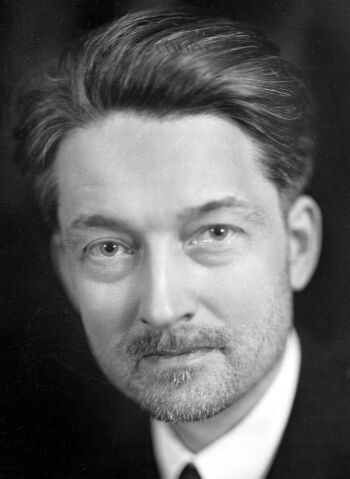
Religion and Branch: Christianity (Catholicism)
Title: Philosopher
Jacques Maritain was a renowned French Catholic philosopher known for his influential work in Christian philosophy, particularly Thomism, and his effort to harmonize faith with reason, theology with science, and Christianity with democracy. His thought has significantly impacted various fields, from philosophy and theology to art and politics.
Initially an agnostic, Maritain and his wife Raïssa converted to Catholicism, influenced by their discovery of the works of St. Thomas Aquinas. He became one of the principal exponents of Thomism in the 20th century, seeking to interpret and develop the thought of Thomas Aquinas in the context of contemporary challenges while emphasizing the compatibility of faith and reason.
Maritain believed in an integrative approach to education, which led him to critique both secular and religious educational systems of his time for being too narrow. He played a significant role in the Catholic intellectual revival in France. He wrote extensively on aesthetics and maintained friendships with many contemporary artists and writers, emphasizing the spiritual value and purpose of art. Maritain's political works, especially "Integral Humanism," articulated a vision of a Christian society in a pluralistic and democratic context. He advocated for a political system rooted in natural law and personal dignity.
Maritain's philosophy had a direct impact on the drafting of the Universal Declaration of Human Rights, as he consulted on its formation, arguing for the inclusion of fundamental human rights grounded in a notion of shared human dignity. Maritain's thought has continued to influence Catholic thinkers, educators, and activists. His engagement with modernity while staying rooted in Thomistic thought serves as a model for many in navigating contemporary challenges.
Louis Massignon (1883–1962)
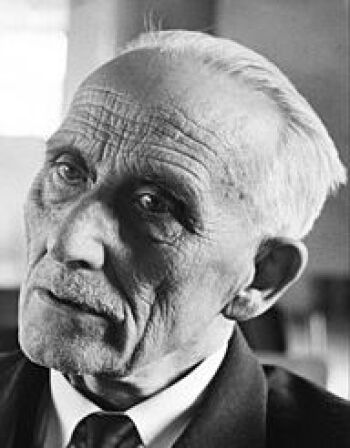
Religion and Branch: Christianity (Catholicism)
Title: Islamic Scholar, Theologian
Louis Massignon was a renowned French Islamic scholar, Catholic theologian, and academic. He is best remembered for his groundbreaking research on the life of Al-Hallaj, a medieval Sufi mystic, and for his passionate commitment to dialogue between the Islamic and Christian traditions.
Massignon's work on Al-Hallaj, titled "The Passion of Husayn Ibn Mansûr Hallâj," is considered a seminal work in Islamic studies. His deep appreciation for Sufism led him to emphasize the mystical and spiritual connections between Islam and Christianity. Inspired by his study of Al-Hallaj and Sufism, Massignon founded the Badaliya prayer association in 1934. The association was dedicated to praying for Muslims and was based on the principle of substitutionary or vicarious prayer.
Despite his deep immersion in Islamic studies, Massignon remained a devout Catholic. He took private vows of celibacy, poverty, and obedience in 1931, and his faith significantly influenced his academic pursuits. Long before interreligious dialogue became a common initiative within the Church, Massignon was actively promoting understanding and respect between Muslims and Christians. He was a pioneer in promoting Christian-Muslim dialogue in the 20th century. Massignon's commitment to interfaith understanding has left a lasting legacy, and he is often invoked as a model for those engaged in Christian-Muslim dialogue today.
François Mauriac (1885–1970)
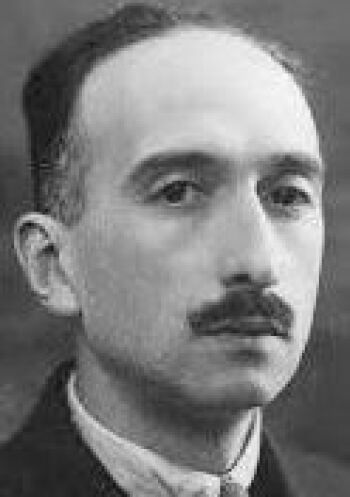
Religion and Branch: Christianity (Catholicism)
Title: Writer
François Mauriac was a renowned French Catholic novelist and essayist, particularly noted for his profound examinations of the tension between sin and grace in human nature. Born in Bordeaux, he was deeply influenced by his Catholic upbringing, and his faith played a central role in his literary works.
Mauriac's novels often explored the spiritual struggles of his characters, delving into moral dilemmas and the dark aspects of human nature. The themes of sin, redemption, and divine grace permeate his work. Among his notable novels are Thérèse Desqueyroux and Vipers' Tangle, both of which detail the inner conflicts of their protagonists with vivid psychological insight. Beyond fiction, Mauriac was a prominent public intellectual and essayist, writing on a range of topics including contemporary events, other literary figures, and Catholic doctrine. He was a fervent critic of French colonial policy and other social issues.
Mauriac was awarded the Nobel Prize in Literature in 1952, with the committee citing his "deep spiritual insight and the artistic intensity with which he has in his novels penetrated the drama of human life." While he was deeply devout, his novels sometimes courted controversy with the Catholic establishment due to their explicit depiction of human failings. However, Mauriac believed in portraying the reality of human weakness as a backdrop to highlight the power of divine grace.
Jacob Kaplan (1895–1994)
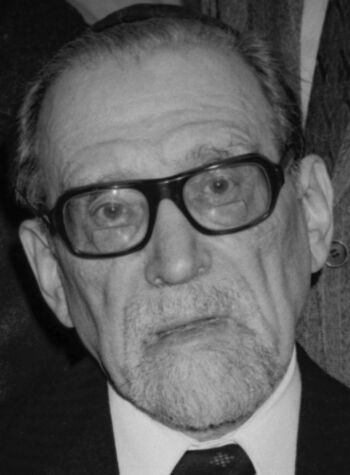
Religion and Branch: Judaism (Orthodox)
Title: Chief Rabbi of France
Jacob Kaplan was a prominent Jewish figure in France during the 20th century. He was an influential rabbi and leader within the Jewish community in France, serving as the chief rabbi of France from 1955 to 1987, a period marked by significant events for both France and its Jewish community.
Taking on the role of chief rabbi in the aftermath of the Holocaust, Kaplan worked to help rebuild Jewish life in France, aiding survivors and refocusing the community after the immense trauma of the Second World War. Throughout his tenure, Kaplan was known for his efforts to promote interfaith dialogue, especially between Jews and Christians. He sought to bridge gaps and foster understanding among various religious communities.
Kaplan was vocal in his defense of Jewish identity and rights in France, especially during times when anti-Semitic sentiments flared. He consistently championed Jewish traditions, values, and the right to religious expression. Kaplan's legacy is one of resilience, leadership, and bridge-building. He left a lasting impact on the French Jewish community and the broader landscape of interfaith relations in France.
Schneour Zalman Schneersohn (1898–1980)
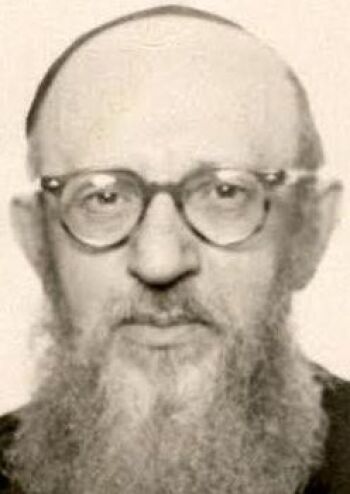
Religion and Branch: Judaism (Chabad-Lubavitch)
Title: Chief Rabbi
Rabbi Schneour Zalman Schneersohn was an important Chabad rabbi in 20th-century Europe. He served as the chief rabbi of the town of Lyubavichi (the birthplace of the Chabad movement) for several years. Later, with the rise of the Soviet Union and its anti-religious campaigns, Rabbi Schneersohn faced significant hardships, including arrest and imprisonment by Soviet authorities due to his religious activities.
After his release, he left the Soviet Union and eventually settled in France, where he continued his religious leadership and educational activities, aiding the Jewish community and ensuring the continuity of Jewish traditions and practices in the midst of World War II and afterward.
He played an essential role in Jewish education and community building in France, ensuring the survival and revitalization of the Jewish community after the war. His leadership was especially critical during the difficult years of the Holocaust and the post-war reconstruction of Jewish life in Europe.
André Trocmé (1901–1971)
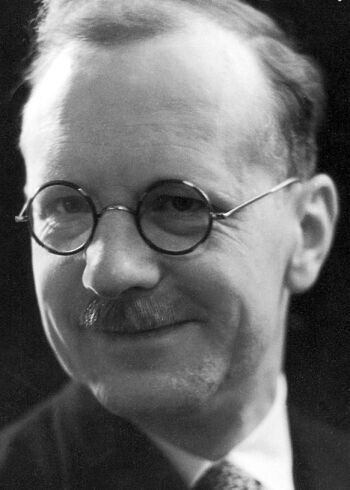
Religion and Branch: Protestant Christianity
Title: Pastor, Resistance Leader
André Trocmé was a French Protestant pastor known for his significant role in the non-violent resistance against the Nazi occupation of France during World War II. As the spiritual leader of the village of Le Chambon-sur-Lignon, he and his wife Magda inspired and led efforts to hide and save numerous Jewish refugees, particularly children, from Nazi persecution. Their efforts and those of the villagers are estimated to have saved around 3,000 to 5,000 Jews.
Trocmé's commitment to nonviolence and social justice was deeply rooted in his Christian faith. He advocated for pacifism, even in the face of violent aggression. His actions and teachings during the war years stand as a testament to the power of nonviolent resistance and the potential of religious communities to enact profound social change. Trocmé's courageous actions during the war have made him a symbol of resistance to oppression and a model of Christian love and compassion.
Jean Daniélou (1905–1974)
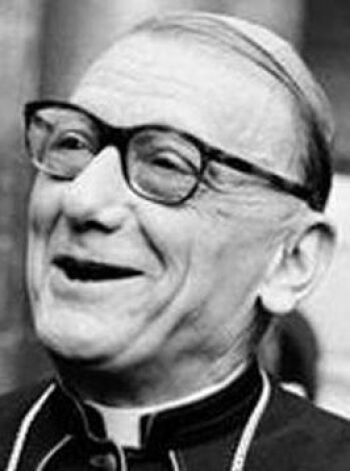
Religion and Branch: Christianity (Catholicism)
Title: Cardinal, Theologian, Historian
Jean Daniélou was a prominent French Catholic theologian, historian, and cardinal. He is best known for his contributions to the early church studies and his role in the ressourcement theology movement, which sought to return to the sources of Christian faith by revisiting the writings of the Church Fathers and early Christian texts. This theological approach heavily influenced the Second Vatican Council, which sought to modernize the Roman Catholic Church.
Daniélou was a foremost expert on early Christian thought, especially on topics related to Christian mysticism, the Church Fathers, and early Christian liturgy. He was a major figure in the ressourcement movement. In recognition of his contributions to theology and his influence within the Church, Pope Paul VI made him a cardinal in 1969.
Cardinal Daniélou authored numerous works on the early church, mysticism, and theology, including The Bible and the Liturgy, The Lord of History, and Sacramentum Futuri. These continue to be read and studied today, and his emphasis on returning to the roots of Christian tradition for contemporary insight remains influential. He was instrumental in fostering a renewed interest in the Church Fathers, which has persisted in Catholic and Orthodox circles alike.
Marcel Lefebvre (1905–1991)
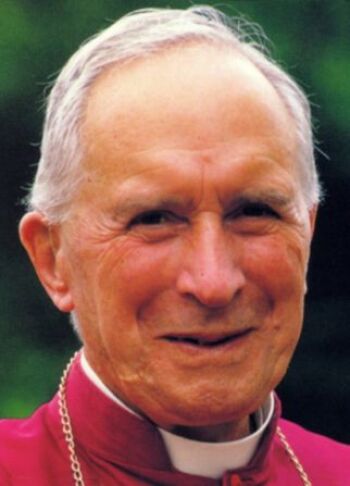
Religion and Branch: Christianity (Catholicism)
Title: Archbishop, Founder of the Society of Saint Pius X
Marcel Lefebvre was a French Roman Catholic archbishop who became a significant and controversial figure in the church due to his opposition to certain aspects of the Second Vatican Council. He is best known for his role in the traditionalist Catholic movement and for establishing the Society of Saint Pius X (SSPX), a traditionalist Catholic priestly fraternity.
After the Second Vatican Council (1962-1965), Lefebvre emerged as a vocal critic of the Council's reforms, particularly the changes made to the traditional Latin Mass and the church's approach to ecumenism. He believed that these reforms were diluting the essence of the Catholic faith and that they represented a departure from traditional teachings and practices. In 1970, he founded the SSPX to ensure the continued ordination of priests who would practice the traditional Latin Mass and adhere to pre-Vatican II teachings.
Lefebvre's staunch traditionalism led to tension with the Vatican. This culminated in 1988 when, against the explicit instructions of Pope John Paul II, Lefebvre consecrated four bishops, leading to his excommunication from the Catholic Church. The SSPX, though irregular in its canonical status, continues to have a significant following among traditionalist Catholics. Lefebvre's influence persists in debates about the direction of the Catholic Church, the legitimacy of the reforms of the Second Vatican Council, and the broader struggle between traditionalist and progressive forces within Catholicism.
Simone Weil (1909–1943)
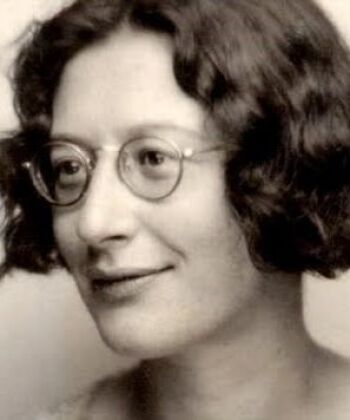
Religion and Branch: Christianity (Mysticism)
Title: Philosopher, Activist, Mystic
Simone Weil was a French philosopher, mystic, and social activist whose work touched on religion, politics, and ethics. She was born into a secular Jewish family and later became attracted to Christian mysticism. Though she never formally converted to Christianity, she had a profound and personal relationship with Christ and was deeply influenced by Christian spirituality. One of Weil's most notable ideas is the notion of "attention" as a form of prayer and devotion, emphasizing the importance of deep, focused contemplation as a means of connecting with the divine.
Weil was deeply involved in social issues, particularly workers' rights. She even took jobs in factories to better understand the plight of the working class. Her social activism was deeply intertwined with her spiritual beliefs, seeing the face of God in the suffering and oppressed. Weil wrote extensively on the nature of suffering, seeing it as a means of spiritual connection. She believed that by experiencing and contemplating suffering, one could achieve a deeper understanding and communion with God.
While she died young, Weil left a significant legacy in both philosophical and theological circles. Her works, including Waiting for God and Gravity and Grace, have been influential in discussions about the nature of faith, suffering, and social justice. While many revere Weil's deep spirituality and commitment to justice, she has also faced criticism, particularly for her views on Judaism and her idealization of suffering. In the landscape of French religious thought, Simone Weil remains a unique figure, navigating the realms of mysticism, social activism, and philosophy to offer a holistic vision of human spirituality and its relationship to the world.
Pierre Ceyrac (1914–2012)
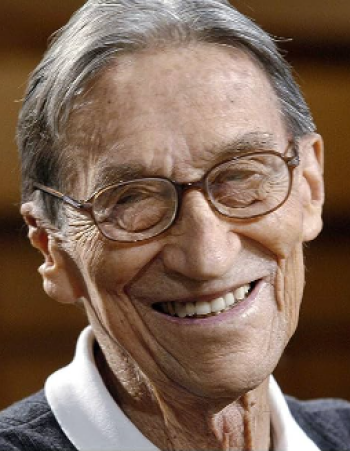
Religion and Branch: Christianity (Catholicism)
Title: Priest, Missionary
Pierre Ceyrac was a French Jesuit priest known for his missionary work, particularly in India. He entered the Society of Jesus in 1931 and was ordained a priest in 1945.
Rather than staying in France, Ceyrac opted to become a missionary in India where he worked extensively among the rural and tribal populations, focusing on education and social upliftment. In the spirit of the Jesuit mission, he combined spirituality with social action, setting up schools, dispensaries, and social work centers. He became an Indian citizen in 1950 and spent more than six decades in India, though he always maintained ties to France.
Ceyrac's compassionate approach to helping those in need, combined with his deep spirituality, earned him respect and admiration both in India and his native France. In the later years of his life, he returned to France, where he continued to inspire many with his commitment to social justice and interfaith dialogue until his death in 2012.
Dalil Boubakeur (1940– )
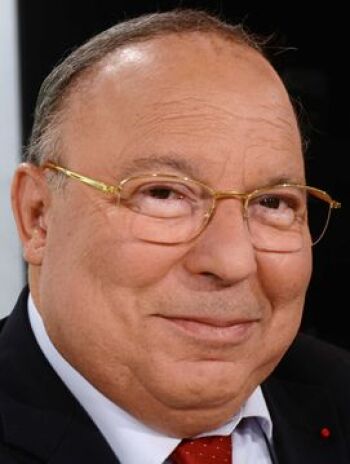
Religion and Branch: Islam (Sunni)
Title: Mufti
Dalil Boubakeur is a prominent figure in the context of Islam in France. Born in 1940 in Skikda, Algeria, he has played a significant role in representing and advocating for the French Muslim community. He serves as the rector of the Grand Mosque of Paris, one of the largest and most significant mosques in France.
Boubakeur has been known as a proponent of a moderate and integrated form of Islam that is consistent with the secular values of France. He has frequently emphasized the importance of French Muslims adhering to the country's laws and values.
Boubakeur has been an advocate for interfaith dialogue, particularly between Muslims and Christians, promoting mutual understanding and combating religious extremism. While his moderate stance has earned him praise in many quarters, it has also attracted criticism from more conservative factions within the Muslim community. Boubakeur has written on topics related to Islam and its place in France, contributing to the discourse about the integration of the Muslim community into French society.
Joseph Haïm Sitruk (1944–2016)
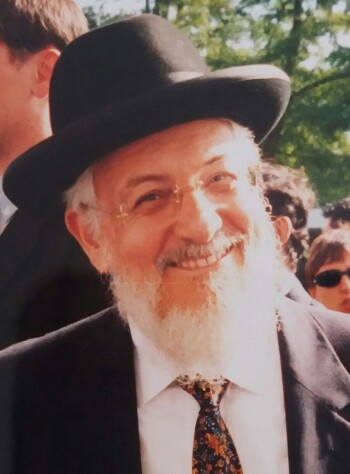
Religion and Branch: Judaism
Title: Rabbi
Joseph Haïm Sitruk was a prominent religious leader in France, serving as the chief rabbi of France from 1987 to 2008. Born in Tunisia, he moved to France in the early 1960s. He received his rabbinical ordination in France and pursued further religious studies in Israel.
Sitruk served three seven-year terms as the chief rabbi of France, a position that made him the leading representative of the French Jewish community. During his tenure, he worked to revitalize Jewish life, education, and practice in France, particularly among the younger generation.
Rabbi Sitruk was known for his eloquence and regular media appearances, where he addressed not just Jewish issues but also national and global events from a Jewish perspective. He was a proponent of interfaith dialogue, particularly between Jews and Christians and Jews and Muslims. He often emphasized the common Abrahamic roots and the importance of understanding and mutual respect among the faiths.
Sitruk was a defining figure in the French Jewish community in the late 20th and early 21st centuries, guiding the community through complex challenges and working to promote Jewish life, understanding, and interfaith relations in France. He is remembered for his leadership during a period that witnessed significant challenges for the French Jewish community, including rising anti-Semitism and tensions in the Middle East. He consistently stressed the importance of Jewish identity, education, and the values of peace and dialogue.
Jean Laffitte (1952– )
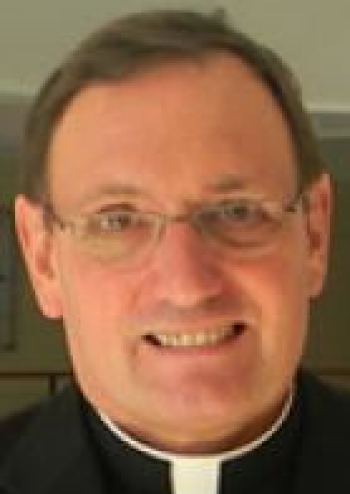
Religion and Branch: Christianity (Catholicism)
Title: Bishop
Jean Laffitte is a French Catholic priest who has held several prominent roles within the Roman Catholic Church. He was ordained as a priest in 1989 in the Community of the Emmanuel, which is a Roman Catholic international public association of the faithful. He was consecrated as a bishop in 2009 by Cardinal Tarcisio Bertone.
Bishop Laffitte served in several key positions in the Vatican. In 2009, Pope Benedict XVI appointed him as Secretary of the Pontifical Council for the Family. Later, in 2015, Pope Francis named him vice president of the Pontifical Academy for Life, an institution that focuses on the promotion of the consistent life ethic of the Catholic Church. Laffitte has expressed traditional Catholic views on topics related to family and life, including teachings on marriage, sexuality, and the sanctity of life.
Laffitte is also known for his theological writings. One of his notable works is The Choice of the Family: A Call to Wholeness, Abundant Life, and Enduring Happiness, in which he discusses the Catholic vision of marriage and family life. Laffitte's work primarily revolves around deepening the understanding of the Church's teachings on family, marriage, and human dignity.
Hassen Chalghoumi (1972– )
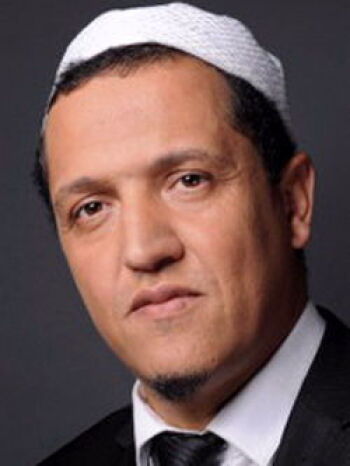
Religion and Branch: Islam (Sunni)
Title: Imam
Hassen Chalghoumi is a Tunisian-born French imam who has gained attention due to his public stances on various issues. He serves as the imam of the Drancy mosque in Seine-Saint-Denis, a suburb of Paris. Chalghoumi is known for his moderate views on Islam, his advocacy for interfaith dialogue, and his efforts to combat radicalization within Muslim communities in France.
Given the backdrop of terrorist attacks and the growing tensions related to Islam in France, Chalghoumi has emerged as a vocal proponent of a French, secular version of Islam. He has faced criticism and even threats from extremists due to his positions on issues such as wearing the burqa (which he opposes) and his support for the state of Israel. Nevertheless, Chalghoumi continues to promote peaceful coexistence and understanding between France's diverse communities.
Copyright © 1993—2025 World Trade Press. All rights reserved.

 France
France